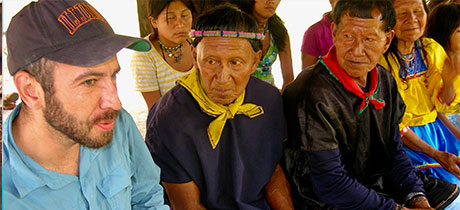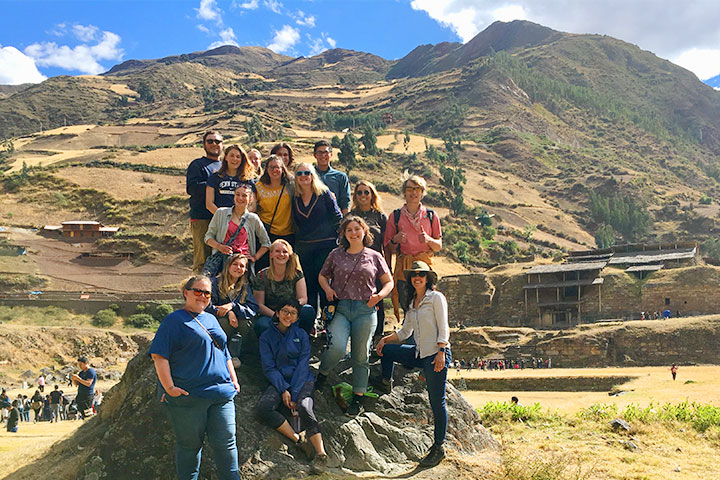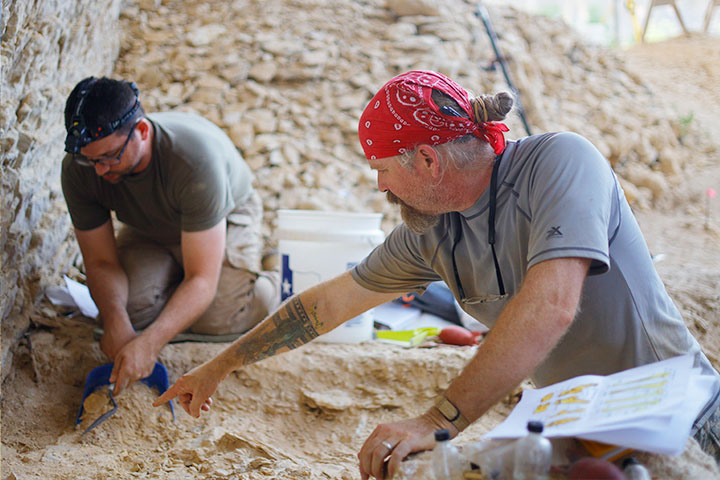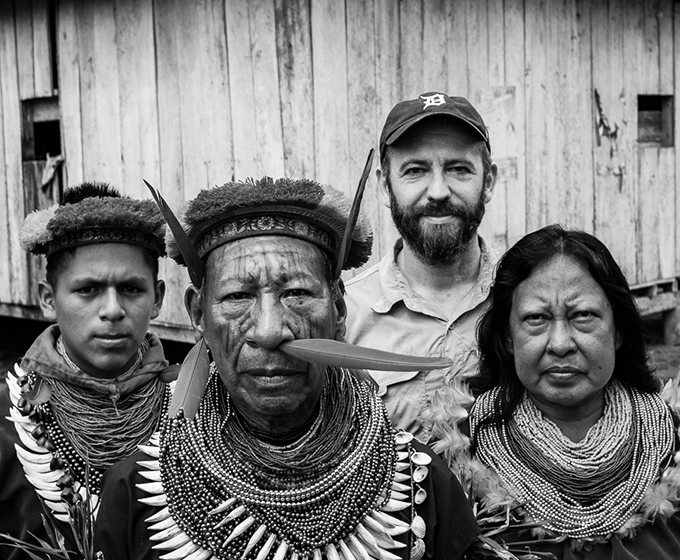The Department of Anthropology at the University of Texas at San Antonio offers a dynamic and comprehensive program that delves into the complexities of human societies, cultures, and evolution. Known for its diverse faculty with expertise spanning from archeology to cultural, biological and linguistic anthropology, the department provides students with a rich understanding of human diversity and the skills necessary to analyze and interpret the complexities of global cultures.
UTSA Anthropology students find success in a broad array of international careers. They make their mark in public health, cultural resource management, historical preservation, and academia among a variety of other fields. Our students are valuable to employers for their cultural understanding, strong research and critical thinking skills, clear ability to communicate, and proficiency in managing complex projects.
Explore below and learn how a degree in Anthropology at UTSA is right for you!
Student Success in Anthropology
The students and alumni of the UTSA Department of Anthropology achieve remarkable things both during their time in the program and after graduation. Each student contributes uniquely to our department, leaving an indelible mark on our community. Our pride in these extraordinary individuals extends far beyond their tenure with us!
David, Preservation Archaeologist for Shumla Archaeological Research & Education Center
I received my bachelors in Anthropology from UTSA in 2018, and my masters from the University of Leicester with Merit in 2013.During my time at UTSA I presented at COLFA's spring research conference and was admitted to the Academy of Undergraduate Research Associates (AURA).I was president of the Anthropological Society at UTSA from 2017-2018.Since graduating UTSA I have worked in cultural resource management for both private sector companies and currently a non-profit. I currently study rock art in the Lower Pecos Region of Texas, with Shumla Archaeological Research & Education center as a preservation archaeologist.Anna, Foundation Operations Manager of the Aerospace Heritage Foundation
I graduated in 2018 with a BA in Anthropology and in 2022 with an MA in Anthropology. Since graduating, I am now the Foundation Operations Manager of the Aerospace Heritage Foundation of Utah at the Hill Aerospace Museum at Hill Air Force Base, UT. I create our virtual tours and digital content, research content for our social media pages, write blog posts, manage events and other foundation programs.
Emily, Lead Counselor at San Antonio Aids Foundation
I am currently Lead Counselor at San Antonio Aids Foundation. My career interests have changed since graduation. I have academic interest in medical anthropology to professional experience in nonprofit/public health advocacy gained through time at San Antonio AIDS Foundation (SAAF) to currently pursuing continued education in nursing with specific interest in working with children and birthing peoples. I aspire to work as RN in pediatrics and labor and delivery.Fields of Study





Anthropology Field Schools
The world is your classroom! We offer archaeological field schools in Belize, Peru, and Arizona. These are only some of the many opportunities for undergraduate and graduate students to undertake research abroad.

Why study anthropology?
Choosing to study Anthropology at UTSA is an excellent decision for students seeking a comprehensive understanding of human cultures, both past and present, and who wish to develop a diverse set of marketable skills. The department's rigorous curriculum delves into the complexities of social behaviors, traditions, and human evolution, offering insights that are increasingly relevant in our globalized world.
Students are immersed in a learning environment that encourages critical thinking, cultural awareness, and a deep appreciation for human diversity. Our program equips students with a skill set that is highly valued in today's job market. Graduates leave with strong research capabilities, both qualitative and quantitative, honed through fieldwork and academic study. The program emphasizes analytical thinking and problem-solving, preparing students to tackle complex challenges in their future careers.
Have a question about our program?
We appreciate your interest in the Department of Anthropology and are ready to answer all questions that you might have about our program and research.

April 12, 2023
UTSA professor Michael Cepek receives prestigious Guggenheim FellowshipUTSA Department of Anthropology Professor Michael Cepek has received the prestigious Guggenheim Fellowship from the John Simon Guggenheim Memorial Foundation for 2023. The Guggenheim Fellowship is an important award because it is one of the most prestigious and competitive grants for artists, writers, scholars and scientists in the United States.

November 14, 2022
NIH awards $2.4 million to UTSA researchers to study aging and health disparitiesA team of researchers led by faculty from the UTSA College of Liberal and Fine Arts has been selected to receive a five-year, $2.4 million grant from the National Institutes of Health (NIH) to develop a new model that could be used to study biological aging. It is the largest grant COLFA researchers have ever received.

May 22, 2022
Professor M. Kathryn Brown honored with Binford Family AwardM. Kathryn Brown, Lutcher Brown Endowed Professor in the UTSA Department of Anthropology, received the inaugural Binford Family Award for Teaching Scientific Reasoning in Archaeology from the Society of American Archaeology (SAA).



